What Is a VPN? A Comprehensive Guide for Beginners
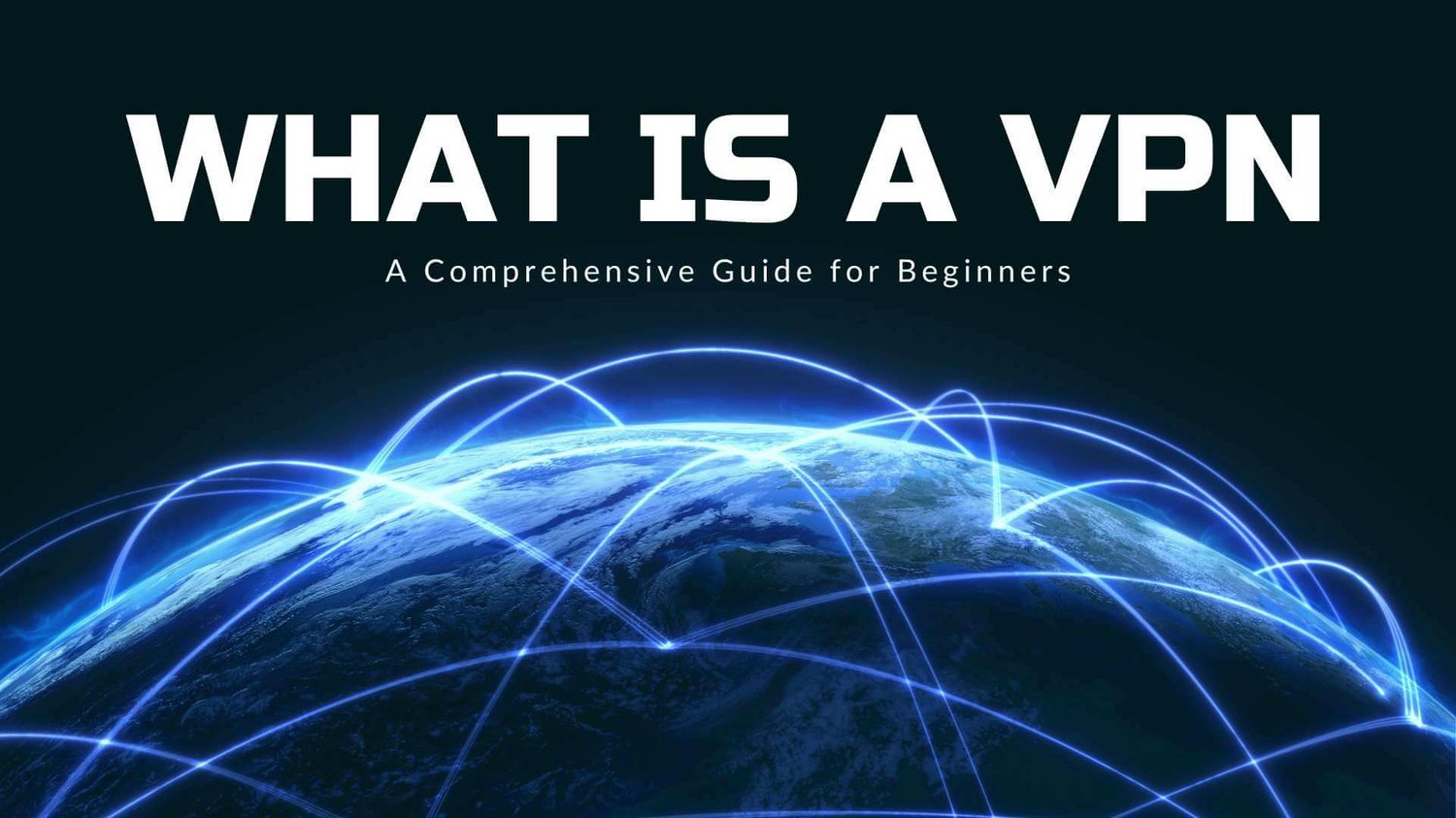
You may have heard of "VPN," but what is a VPN? And why should you use it?
In this beginner's guide, we'll tell you everything you need to know about VPN in a simple way!
What Is a VPN?
VPN stands for "Virtual Private Network" - a service that lets you go online safely and anonymously by hiding your IP address and encrypting your data.
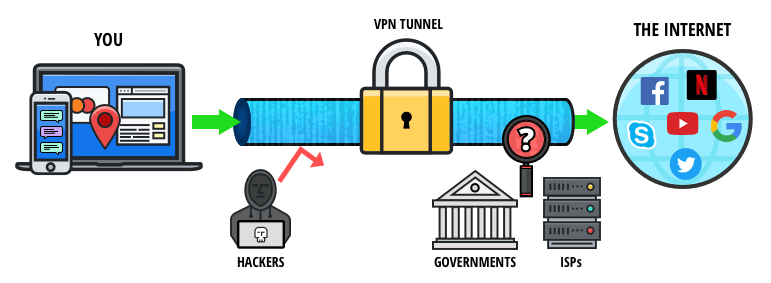
To grasp "what is a VPN," you just need to understand 2 key points about VPN:
- Change Your IP Address: A VPN can hide your actual IP address and let you choose an alternative one. This often helps bypass geographic restrictions and avoid online censorship.
- Encrypt Your Data: When data travels between your device and the VPN server, it's encrypted into an unreadable form. Even if someone intercepts it, they can't read it without the secret key.
For a high-level overview, see our page on What is a VPN
You should now fully understand what a VPN is. However, why use a VPN, and what are its benefits? Let's keep reading!
Why Use a VPN: 4 VPN Benefits
Why use a VPN? Simply put, using a VPN makes your online activities safer, easier, and smoother:
1. Protect Your Data
When using a VPN, your personal information is encrypted, including your browsing activities and sensitive data. So, even if someone gets your data, they can't read it.
2. Access Restricted Content
Sometimes, certain websites or services limit your access based on where you are. However, by connecting to a VPN server in another location, you can access content worldwide (like streaming, games, etc.).
Read more about how VPNs help in accessing restricted content in our article on Exploring 7 Types of VPNs and When to Use Them
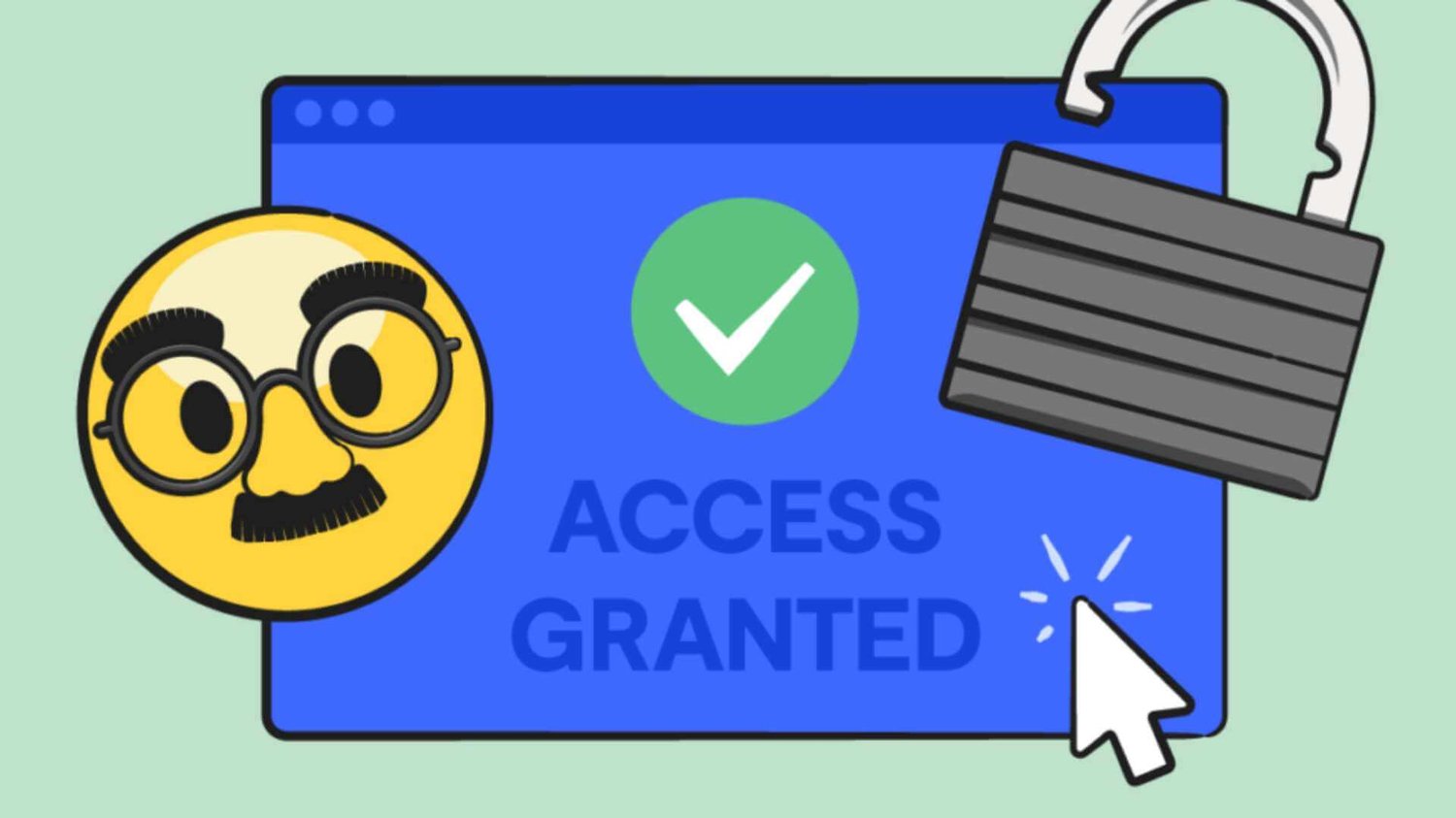
3. Avoid Online Tracking
Using a VPN can hide your real IP address, letting you stay anonymous on the Internet without being tracked by others.
For example, some apps track your Internet activity to push personalized ads. If you use a VPN, this is less likely to happen.
Learn how VPNs protect your privacy in our post How VPNs Protect Your Privacy and Online Identity.
4. Save Money
Many companies offer different prices in different regions. By using a VPN, you can pretend to be in another region and get lower prices for certain digital services and products. Here are a few common examples, and we'll show you how to buy them cheapest:
- TikTok Coins
- Youtube Premium
- Fortnite V-Bucks
- Apple Music
- Flight Tickets
- Spotify Subscription
- Games Order
You see, VPN really works, not just in theory.
How Does a VPN Work?
Learning how VPN works can help you better use it. Here's what happens behind the scenes:
- Establish a Connection: VPN providers often offer hundreds of servers located worldwide. When you start the VPN, your device connects to one of these servers.
- Create a Tunnel: At this point, a secret tunnel is created between your device and the server. This tunnel encrypts and scrambles your internet traffic so your ISP cannot decipher it.
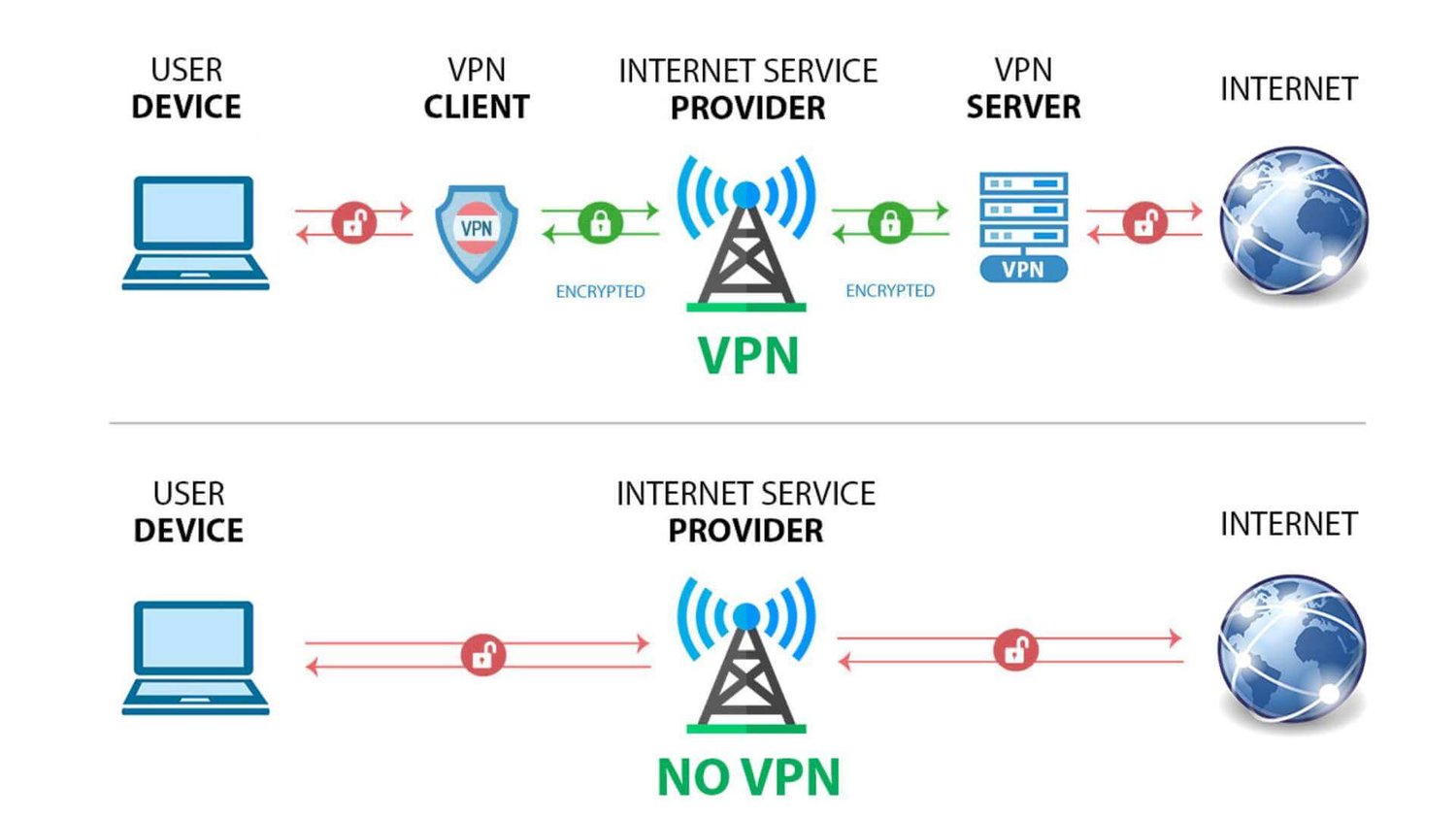
3. Transmit Your Data: All your data is transmitted through this encrypted tunnel. Your data is encrypted before entering and decrypted when it comes out.
4. Deliver Your Data: The VPN server successfully sends your data to the website you want to visit.
Since all your internet activity goes through the VPN server, it appears that your online activity is coming from the VPN server to others. This hides your real IP address, making you more anonymous and protected.
For a detailed technical breakdown, see our guide on How Does a VPN Work?.
3 Main Types of VPN
Today, there are many types of VPNs, but most of them fall into 3 categories:
1. Personal VPN
- Main users: Individuals
The name says it all. Personal VPN is designed for individual users, allowing them to securely connect to a private network from anywhere, like at home or while traveling.
*Most consumer-grade VPNs are Personal VPNs, and X-VPN is no exception.
2. Site-to-Site VPN
- Main users: Business users (especially large enterprises)
A site-to-site VPN allows all offices to connect to the same network securely, enabling them to share information and resources.
Learn about other VPN protocols and how they work in our article on Understanding VPN Protocols: How They Impact Your Online Security and Speed.
3. Remote Access VPN
- Main users: Employees working remotely
With Remote Access VPN, employees can safely access company resources outside the company. They work much like Personal VPNs. However, people usually use a Remote Access VPN for work rather than entertainment.
Are VPNs Legal?
In most countries, it’s legal to use a VPN. For example, in the US, the UK, Canada, and most of Europe, the use of VPNs is completely legal and unrestricted.
* However, even without restrictions, using a VPN for unlawful activities is still illegal.
Rules for VPNs vary by country. Some countries/regions ban or severely restrict VPN use:
| Country | Status |
|---|---|
| Belarus | Illegal |
| Iraq | Illegal |
| North Korea | Illegal |
| Turkmenistan | Illegal |
| China | Legal with restrictions |
| Egypt | Legal with restrictions |
| Oman | Legal with restrictions |
| Russia | Legal with restrictions |
| Turkey | Legal with restrictions |
| UAE | Legal with restrictions |
So, please know and follow your local laws before using a VPN.
Are VPNs Safe? How to Tell?
Some VPNs are safe. A secure VPN has strong security defenses, minimizing the risk of hacker attacks and data leaks. To tell if a VPN is safe, you can consider the following:
- Open Source Code: If the VPN is open source, you can review its code to make sure it doesn't have security issues.
- Encryption and Protocols: Evaluate the VPN's encryption algorithms and communication protocols to ensure they meet high-security standards.
- History of Security Vulnerability: To get an idea of this VPN's security, check its past security vulnerabilities and bug fixes.
- Privacy Policy: A secure VPN provider keeps its privacy policy transparent. By reading it, you can determine if they comply with data collection, usage, and sharing laws.
- Official Certification: Check if independent security organizations or professional certification bodies have certified the VPN software.

However, not all VPNs are safe. Before choosing a VPN, make sure to research it thoroughly!
For more details, read our post on VPN Security Explained: Kill Switch, Split Tunneling, More.
How to Choose a VPN?
As you know, VPN acts as a middleman between you and the Internet. The trick is finding a middleman you trust. Here are 9 important factors for choosing a VPN:
1. Free VPN vs Paid VPN: Paid VPNs are usually safer, faster, and have more features. However, some reliable free VPNs can also be a good choice.
>>Related Reading: 6 Best Free VPNs for PC - 2024 Top List
2. The Ability to Unblock Restricted Content: A quality VPN can easily unblock restricted websites and overcome VPN blocks. For example, X-VPN offers obfuscation via the Everest Protocol, allowing you to bypass VPN blocks effortlessly.
3. Security and Privacy Features: A good VPN usually has strong encryption (AES-256), robust protocols (like WireGuard), a no-logs policy, and security features such as a kill switch.
4. Speed: Use some VPN speed test tools to see how fast the VPN is. This is especially important when you want to use a VPN for streaming videos or playing games.
5. Location and Number of Servers: Ensure the VPN has servers where you need them. Also, more servers mean less crowding.
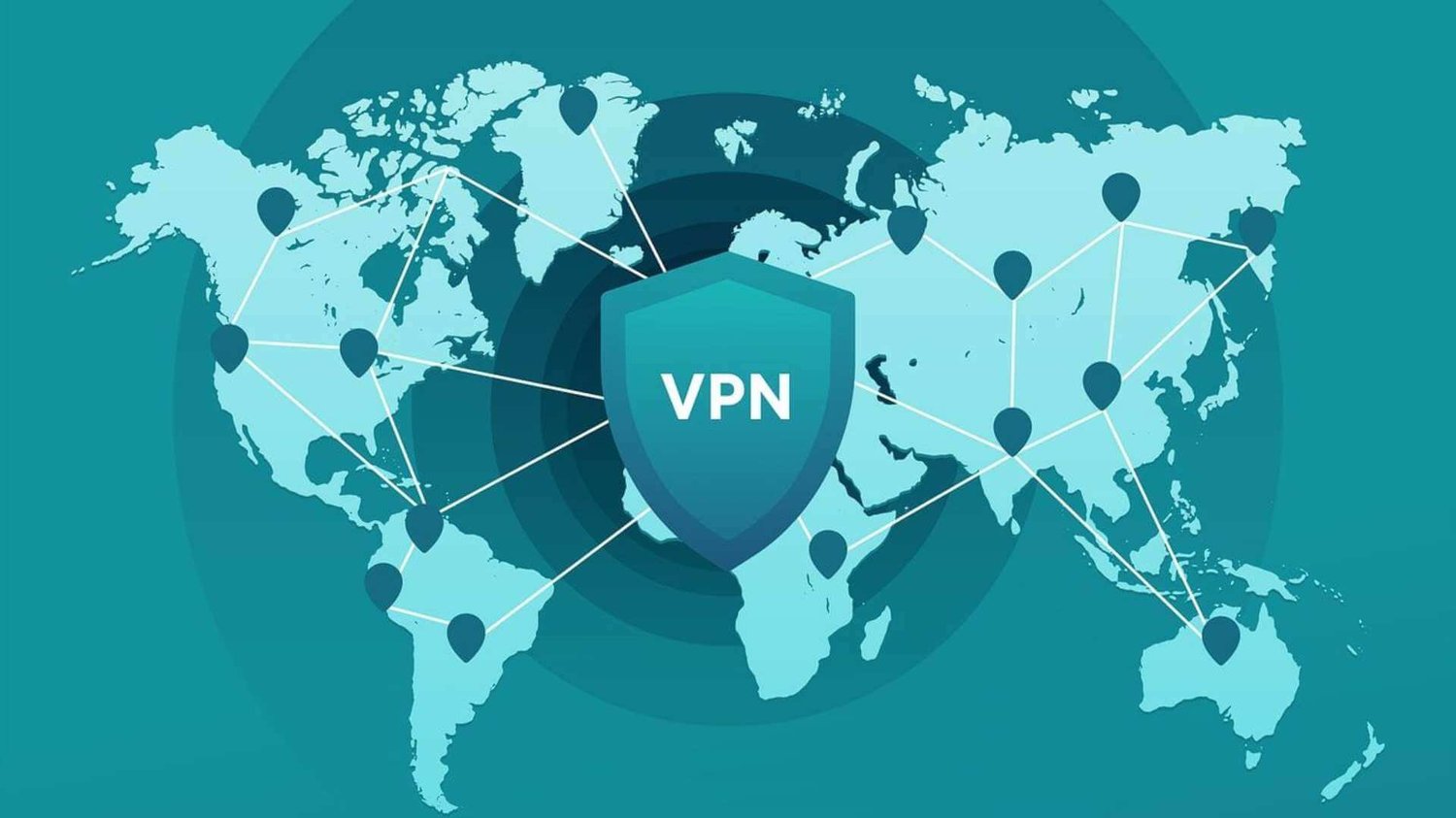
6. Easy to Use and Compatible: Choose a VPN with a simple interface that works on all your devices.
Learn more about VPN compatibility in our article on How to Use a VPN.
7. No-log Privacy: It means that a VPN provider won't keep track of your IP, online activities, or anything that could be identifiable. However, they may need to collect some necessary information: account details (for managing accounts), connection times (for monitoring service stability), and certain technical data (for troubleshooting and improving service quality).
8. Customer Support: For a quick response, choose a VPN with 24/7 live chat.
9. Additional Features: Consider whether the VPN offers extra features, such as multiple VPN protocols or split tunneling to meet your specific needs.
The Best VPN for Beginners in 2024: X-VPN
X-VPN is completely free, safe, fast, and has a simple interface, making it perfect for first-time users.
If you want to experience more servers and advanced features, you can try the Premium version for free for 30 days.
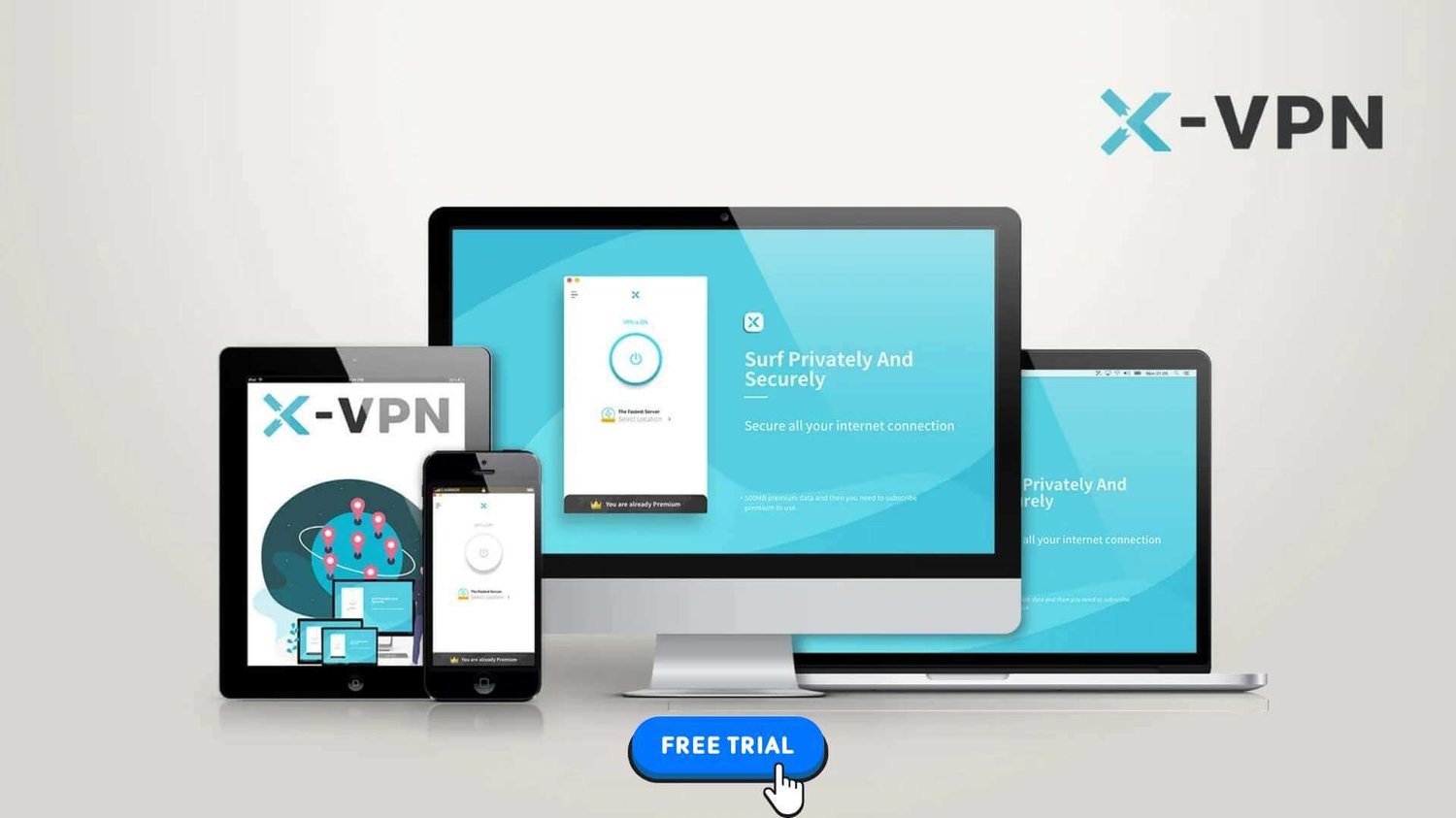
🟩 Version: Free & Premium
📍 Servers: 8000+
🌍️ Countries: 64
📱 Devices: Windows, Mac, Android, iOS, Linux, Amazon Fire TV, Chrome, Routers
💰 Refund: 30 days
📝 Keep Logs: No
🔰 Kill Switch: ✅
👩💻 Support 24/7: ✅
If you want to find the best VPN for different needs, please check the related articles below:
- Best VPN Free Trials
- Best Free VPNs for PC
- Best Free VPN for Android
- Best VPN for iOS
- Best VPN for Streaming
- Best VPN for Game
How to Use a VPN? 3 Easy Steps!
Using a VPN is super easy, just takes a few minutes. Here, we will refer to X-VPN - one of the safest and fastest VPNs.
Step 1: Download free VPN and install it.
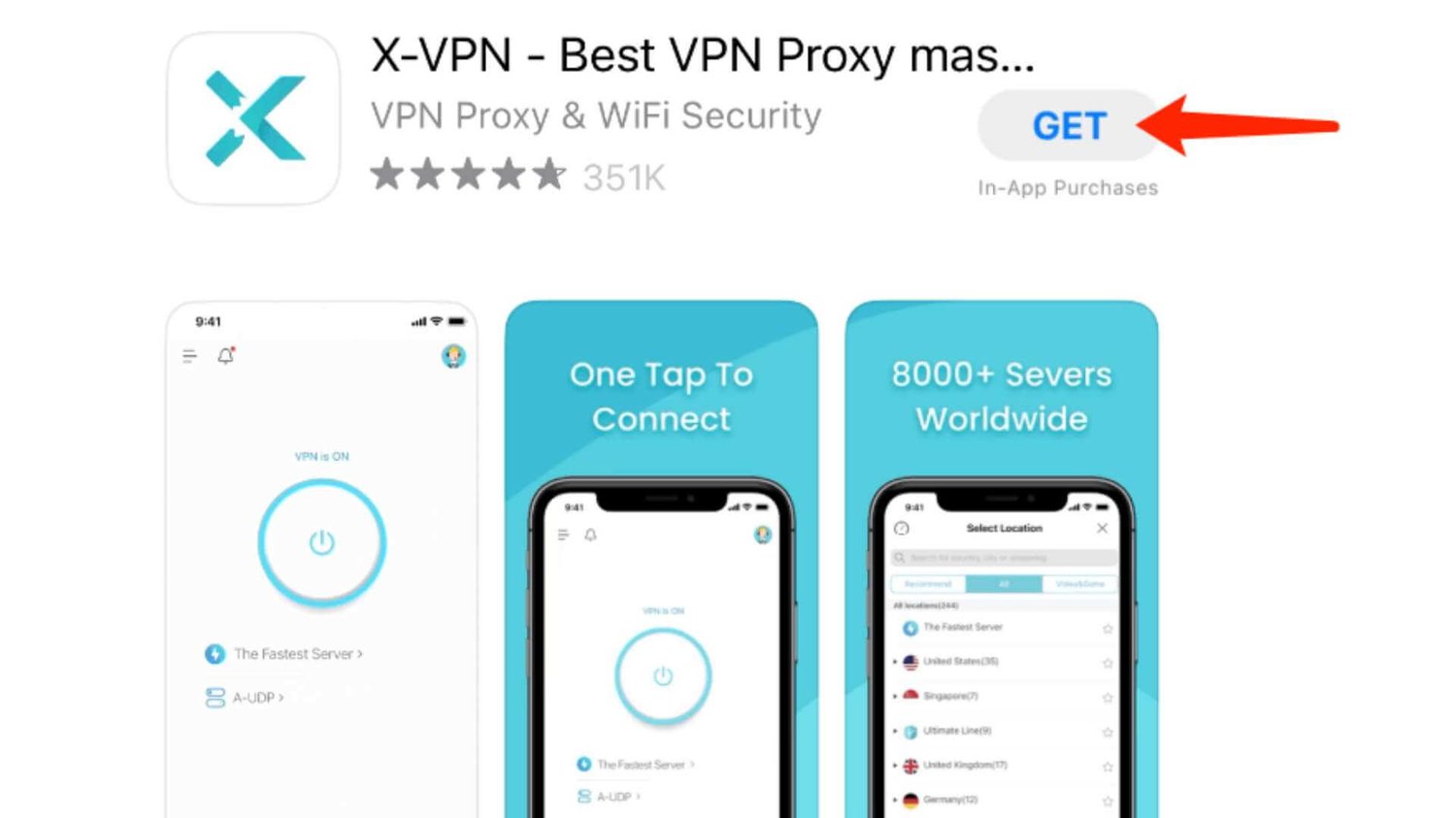
Step 2: Open X-VPN and choose a subscription plan. You can start with the free version, but some features are unavailable until you upgrade to a premium plan.
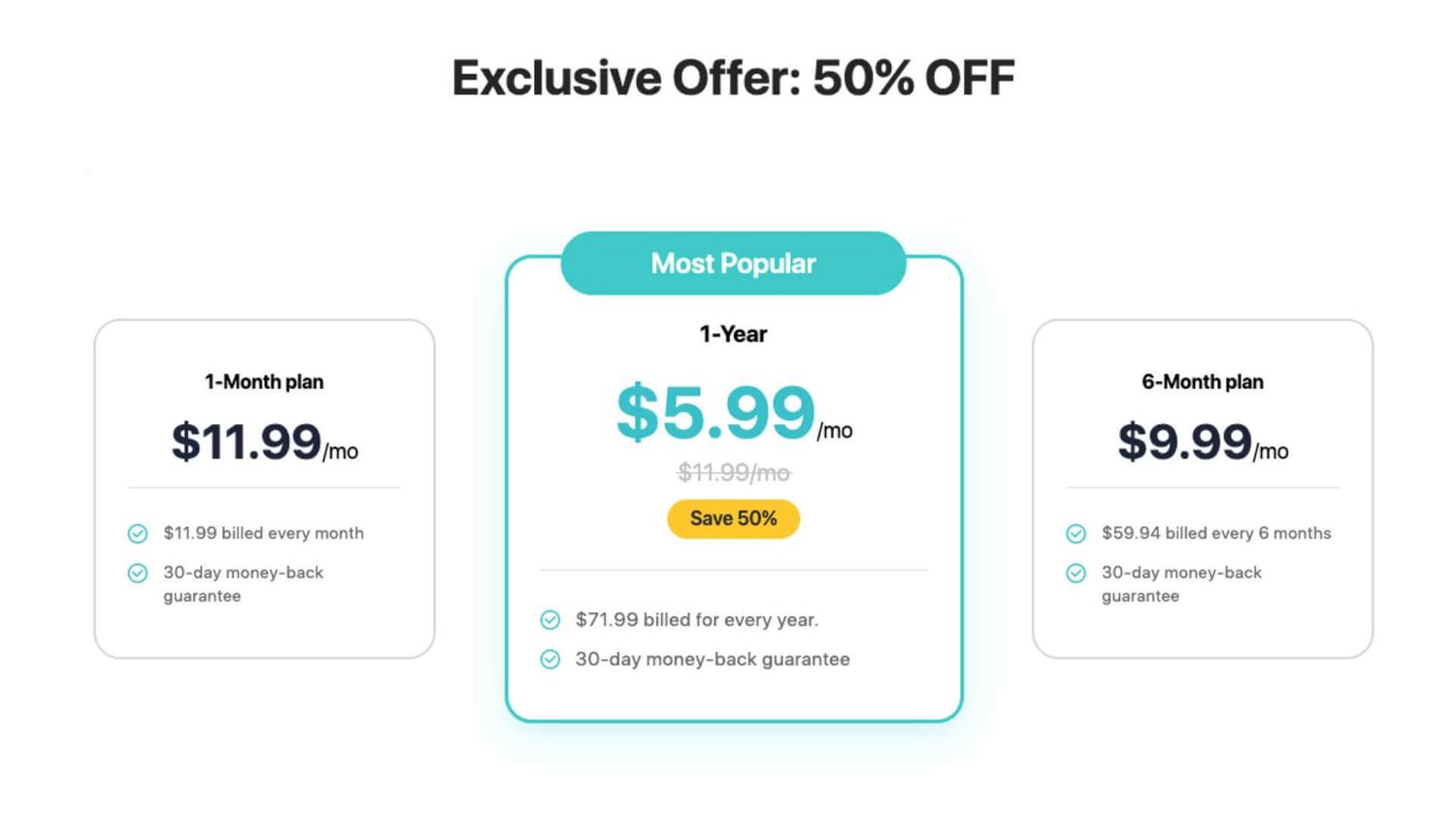
Step 3: One-tap to connect!
Extra Tip: Choose “The Fastest Server” and “Auto Protocols” for the best online experience!
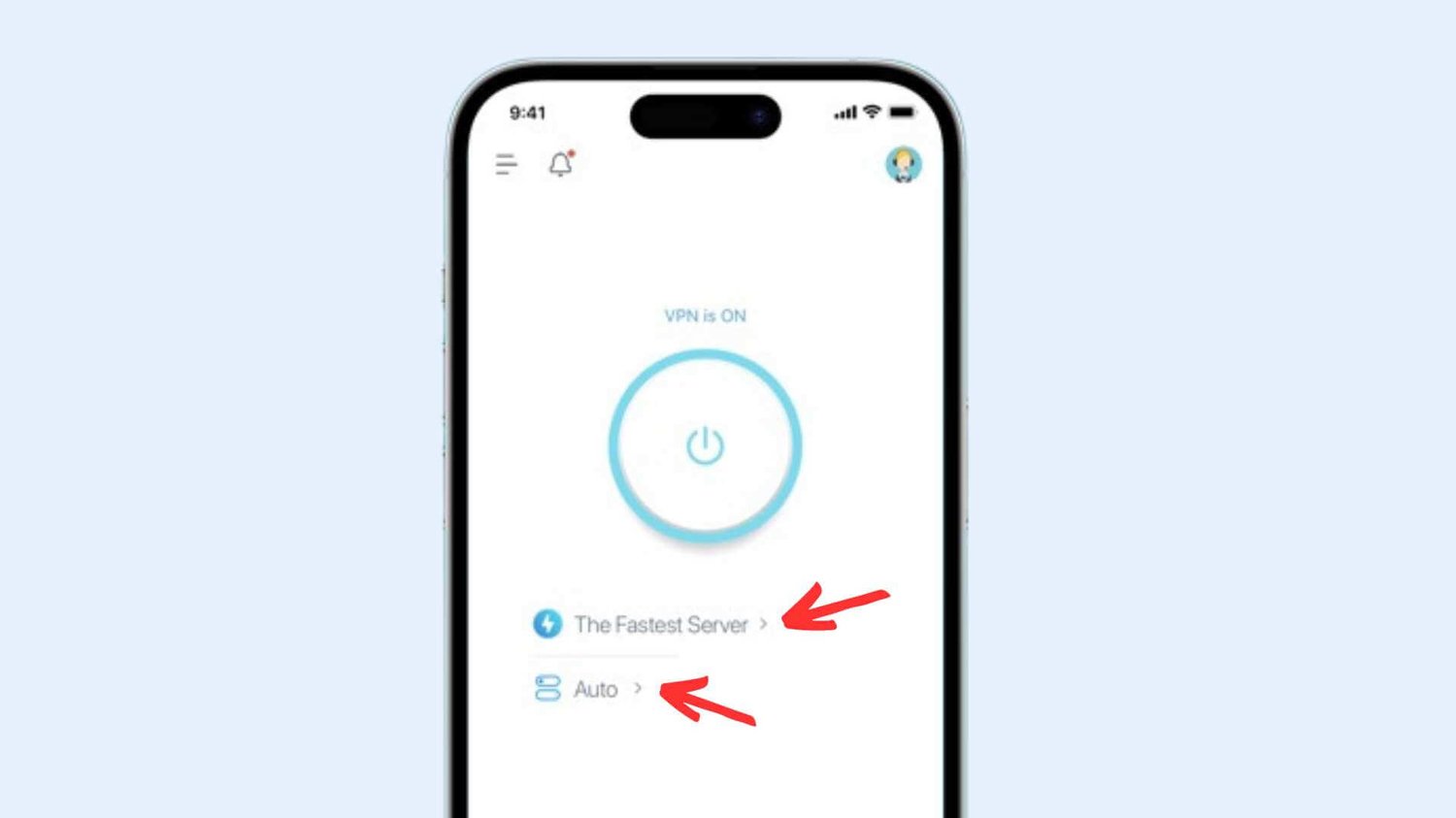
Now, you have successfully launched X-VPN!
>>Related Reading: How to use a VPN on any device?
Conclusion
What is a VPN? It's a service that can provide you with a secure, private, and unrestricted online experience. So, start using the popular X-VPN for a more open and safer time on the Internet!
FAQs about What Is a VPN
1. Are there free VPNs?
Yes, you can get a VPN service for free. Although some have a bad reputation, providers like X-VPN offer quality free VPN services. Plus, X-VPN's free version doesn't limit data and bandwidth.
2. How do I get a VPN?
Choose a reliable VPN service > Download and install the VPN app > Subscribe to a plan > Connect to the VPN server
3. How much does a VPN cost?
The average cost of VPNs ranges from $2 to $18 per month, depending on the subscription plan you choose. Choosing free services and long-term plans can help you save a lot of money.
4. Can a VPN make my internet faster?
Generally, a VPN might slightly reduce your internet speed due to encryption. However, it can improve streaming speeds by bypassing ISP throttling.
5. Do I need technical knowledge to use a VPN?
No, most VPNs are designed to be user-friendly and easy to set up. For example, X-VPN offers a one-tap connection feature.
6. How do I choose the best VPN server?
Choose a server that is geographically closer to you for better speed, or select a server in a location that offers the content you want to access. Avoid crowded servers for optimal performance.
Follow Us on Social Media
Recent Articles
How to Use VPNs for Secure Social Media Management
Jul 29, 2024 | 9 mins to readHow to Set Up a VPN on Windows 10/11?
Aug 14, 2024 | 7 mins to readHow to Use Signal App in Russia: Solve Signal Ban
Aug 12, 2024 | 4 mins to read30 Best FMovies Alternatives in 2024 (Still Working)
Aug 12, 2024 | 14 mins to readAccess anything anywhere anonymously with X-VPN
24/7 one-one live chat support
Ultimate protection for 5 devices
Access to all worldwide contents
8000+ servers at 225 locations
30-DAY MONEY-BACK GUARANTEE

